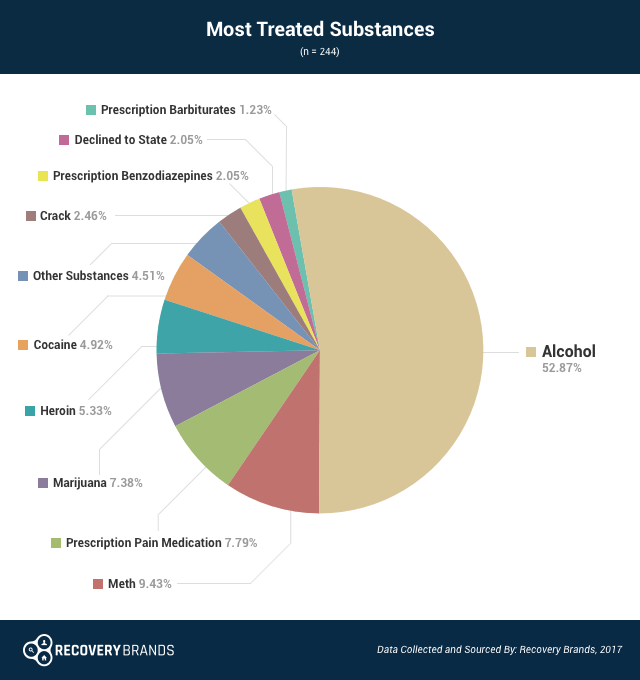How To Get Sober From Drugs and Alcohol
Deciding to overcome an addiction to alcohol or drugs could be the most important decision of your life. Once you understand that you have a problem and need help, knowing what next steps to take can be confusing.
Most people don’t quit using alcohol or drugs overnight. Getting sober is a gradual process that can take weeks, months, or even years. Many people struggle with lapses and relapses throughout the course of their recovery journey, so don’t be too hard on yourself if you encounter temporary setbacks.
No matter how long you have been abusing drugs or alcohol or how bad your addiction is, there are certain steps that anyone struggling with an addiction must take if they want to learn how to quit abusing drugs or alcohol, including:
- Committing to quitting.
- Determining and setting goals.
- Choosing a treatment plan.
- Getting support during treatment.
- Planning to live an addiction-free life.
If you are committed to taking the steps necessary to quit abusing drugs or alcohol, treatment professionals and members of your support group can help you throughout the recovery process.
Commit to Quitting: How Do You Stay Sober?
Getting sober takes time and effort, and those enrolled in a treatment program must be fully committed to attaining sobriety. There are many reasons to commit to getting sober. Many people want to rebuild the relationships they had with their children, spouses, or other family members. Others simply want to stop being under the influence of substances that make them behave in ways they should not.
Whatever your reason for quitting, you must commit to being substance-free. Motivation to recover is strongly correlated with ongoing sobriety, so it is critical to your long-term success that you think about what is motivating you to want to make this life change.
In the past, people believed that you had to “hit bottom” before you could successfully recover. But in recent years, research has shown this to be a myth. If you can find the motivating factors, you don’t need to lose everything before you recover from addiction to alcohol or drugs.
Tips To Set Goals for Recovery
Setting goals for your recovery will help you maintain your motivation. Often it can be helpful to personally identify some of your underlying values. Knowing what you value in life will help you set goals that are relevant and important to you.
If you are still actively struggling with your addiction, it may be best to think of short-term goals—things that you feel you can accomplish within a few months’ time. Set goals that are specific behavioral goals, things that other people could observe you doing, not vague goals like “feel better” or “be happy.” Early in recovery, your goals should be mostly related to your addiction. Applying a timeline to your goals can be helpful in keeping you on target.
Tips of short-term behavioral goals include:
- Identifying a specific problem and developing a plan for dealing with it going forward.
- Managing feelings by recognizing, labeling, and appropriately expressing emotions.
- Talking about the shame and guilt of abusing alcohol or drugs to learn to associate feelings with actions in a healthy way.
- Learning techniques to help manage anger, control impulses, and reduce depression.
Decide on Treatment and Get Sober
When you stop using drugs or alcohol, you must make sure that you do it in a safe and healthy way. Entering an addiction rehabilitation (rehab) center can help you in many ways.
Depending on your primary substance of abuse and how long you’ve been using, you may first need the support of a medically supervised detoxification (detox) program. Drug and alcohol rehab centers are designed to keep you away from the temptation you may experience if you try to get sober alone. After completion of the detox process, these programs can offer you both the emotional support and a structured plan to avoid a relapse.
Drug and alcohol abuse treatment can be sought in a variety of settings and specific program types. Many with relatively severe substance use issues elect to attend inpatient or residential rehab programs. Treatment in a residential setting takes the recovering individual out of a potentially challenging home environment and facilitates focused recovery efforts for a duration ranging from a few weeks to a few months, or longer if need be.
Structured outpatient rehab programs also exist that provide substance abuse treatment interventions similar to those offered in a residential setting, but are administered in a somewhat less immersive and less time intensive setting. In many cases, outpatient programs are good fits for people with relatively stable home environments and strong support systems. Outpatient treatment often entails focused recovery programming for several hours per day, for several days a week.
What Are the Most Treated Addictions?
More people seek treatment for alcohol than any other substance.

Alcohol is one of the most predominant substances of abuse in treatment attendees, as Recovery Brands revealed with a 2017 survey. The survey found that 68.85% of people in recovery struggled with an alcohol abuse problem, and a shocking 52.87% of respondents received the most treatment for alcohol abuse. Out of all abused substances, the one that causes the most extensive damage is alcohol.
Planning for Cravings and Avoiding Temptation
It is common to experience cravings within the first few months after you quit drinking alcohol or using drugs. You must understand this and have a plan for the times when a craving occurs.
There are many ways to deal with a craving. You can talk to a family member or friend. Some people distract themselves from the craving by doing things like exercising, listening to music, or running errands. For others, reminding themselves of their reasons for getting sober helps. Having a written relapse prevention plan can help you remember what to do if an urge strikes.
Try to avoid any temptation. Throw away all of the alcohol and drugs in your house. You may have heard the old adage, “Stay away from people, places, and things.” It is important to identify relapse triggers and stay away from situations as well as people who have contributed to your addiction or ask them to not drink or use drugs around you.
It is important to be honest with people about your limits. Do not attend parties where there will be drugs or alcohol. Taking steps such as these can go a long way in preventing relapse.
Trigger situation avoidance and other relapse prevention skills are one of the many valuable lessons you’ll take from participation in some form of substance abuse rehab program.
Find New Meaning in Life
While rehab and treatment are essential steps at the beginning stages of recovery, it’s important to look into the future and plan for a drug- and alcohol-free lifestyle in the long term.
An important step to take is in resolving to take care of yourself in the long-term by building a healthy lifestyle. Eating nutritious meals and getting plenty of rest are important for good health. Many people neglect their health while they are in active addiction. If this is the case for you, recovery can be an opportunity to attend to health issues that may have gone untreated in the past.
Another good idea is to find new hobbies that you find fulfilling. This can help to ultimately improve your self-esteem and lessen the appeal of drugs or alcohol. Finding ways to deal with stress is also important. Hobbies and exercise are healthy ways to reduce your stress level. Exercise helps by releasing endorphins that reduces stress. Finally, mindfulness practice has been demonstrated to assist in maintaining long-term recovery.
Help Getting Sober: How To Get Support
 Finding the right support throughout your recovery process is vital to getting sober. There are numerous places and people you can turn to for help, including support groups, family members, close friends, and other people in recovery.
Finding the right support throughout your recovery process is vital to getting sober. There are numerous places and people you can turn to for help, including support groups, family members, close friends, and other people in recovery.
Many people attend and follow 12-step programs, such as Alcoholics Anonymous (AA) or Narcotics Anonymous (NA). These programs allow you to be completely honest about your addiction and struggles with getting sober without the fear that what you say will get out into the public.
Many recovering people attend support group meetings in order to encourage those who are just beginning to live a drug-free life. At some meetings, a recovering person may share his or her experiences and struggles with addiction and recovery.
Many rehab centers have residents attend on-site meetings. These programs allow members to obtain sponsors who are willing to guide them through the treatment program. Additionally, support group attendance – whether 12-step or some alternative program – is a crucial part of many aftercare programs.
If you are a religious person, attending church may also help you to maintain sobriety. Attending church functions and following the church’s teachings about abstaining from drugs and alcohol can be effective for some people. Churches often host 12-step programs or other addiction support groups. You may also be able to find an addiction treatment center that caters to your religious beliefs, helping you invoke your faith as you start a new life in sobriety. Combining the teachings of a particular religion and the teachings of support group educators can be an effective way to help you stay abstinent from drugs and alcohol.
Family is another means of support that can be powerful. Make use of supportive family members. Some AA or NA groups offer open meetings that family members can attend. Attending an open meeting with you can help your family better understand what you are doing in your recovery.
They may also benefit from seeking their own support in a family program like Al-Anon or Nar-Anon. If you don’t have supportive family, try to build a support system elsewhere. Many people in recovery don’t have strong family support, so it’s important to find other people they can count on.
Outpatient rehab centers are also an option for those who need a less-intensive level of treatment. An outpatient rehab can offer you a combination of medication-assisted recovery together with group and/or individual therapy without having to leave home to stay in an inpatient or residential treatment center.
No matter where you look for support, having people on your team for support as you embark on your recovery journey will improve your chance for success.
Getting sober is a process that requires your complete commitment, and having others around you who will support you can make all the difference. Addiction rehab works. Get started today on your personal path to recovery and a healthy, substance-free life.
If you’re ready to find addiction treatment options for yourself or a loved one, get started with our free nationwide rehab search tool. Find addiction treatment facilities that take insurance, rehabs that allow pets, outpatient rehab programs, and more.